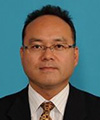 |
|||
|
|
|||
|
Global Standardization Activities Vol. 21, No. 3, pp. 34–37, Mar. 2023. https://doi.org/10.53829/ntr202303gls Report of the ITU Plenipotentiary Conference 2022 (PP-22)AbstractThe Plenipotentiary Conference 2022 (PP-22) of the International Telecommunication Union (ITU) was held in Bucharest, Romania, from 26 September to 14 October 2022. This article gives an overview of the conference and its major deliberations. Keywords: ITU, PP, election, ICT, development 1. IntroductionThe Plenipotentiary Conference 2022 (PP-22) of the International Telecommunication Union (ITU) was held in Bucharest, Romania, from 26 September to 14 October 2022. About 2500 people from 193 countries participated in the conference, and the Japanese delegation consisted of about 90 people from the government and private sectors, led by Mr. Yoshifumi Tsuge, State Minister for Internal Affairs and Communications, and Mr. Hiroshi Yoshida, Vice Minister for Policy Coordination (International Affairs) of the Ministry of Internal Affairs and Communications. 2. Overview of PP-22The PP is the highest decision-making body of ITU, which meets once every four years. Representatives of all member countries (Member States) participate in the conference for the elections of senior officials and the Member States of the ITU Council (Council Member States) for the next period and for the discussion of important documents such as PP resolutions. The PP-22 established six committees (COMs) and a Working Group of the Plenary (WG-PL) under the Plenary. COM1 was a Steering Committee, COM2 dealt with credentials, COM3 with budget control, COM4 with editing, COM5 with policy and legal matters, COM6 with administration and management, and WG-PL with the reports and proposals and recommend appropriate actions with regard to issues related to public policies, including Internet, and other general matters. Mr. Sabin Sărmaș, a member of the Romanian Parliament and a Chairman of the IT&C Commission within the Chamber of Deputies, was appointed the Chair of the conference. 3. Results of the elections of senior officials and Council Member StatesThe PP-22 held elections of ITU senior officials and Council Member States for the period 2023–2026. The Japanese candidate Seizo Onoe (Chief Standardization Strategy Officer, NTT) was elected as the next Director of the Telecommunication Standardization Bureau (TSB). He will serve one term of four years, with a maximum of two terms. In addition to Mr. Onoe, there were two other candidates running for the post of the TSB Director: Dr. Thomas Zielke (Germany) and Dr. Bilel Jamoussi (Tunisia), a current TSB staff member. Mr. Onoe was elected on the first ballot with a majority of the votes cast by the PP-22 participating Member States entitled to vote. This is the first time a Japanese national has been elected as the Director of TSB, and he is expected to be responsible for the standardization of next-generation telecommunications networks. In addition to the next TSB Director, the PP-22 also saw the election of the next Secretary-General, the next Deputy Secretary-General, the next Director of Radiocommunication Bureau, the next Director of the Telecommunications Development Bureau, the next member of the Radio Regulations Board, and the next Council Member States, with Ms. Doreen Bogdan-Martin (USA) elected as the Secretary-General and Mr. Tomas Lamanauskas (Lithuania) as the Deputy Secretary-General. Mr. Mario Maniewicz (Uruguay) was re-elected for his second term as the Director of Radiocommunication Bureau, and Dr. Cosmas Zavazava (Zimbabwe) was elected as the Director of Telecommunications Development Bureau. In the election for the next Council Member States, Japan also stood for Region E (Asia and the Pacific) (13 seats) and was elected with 146 votes (180 valid votes). This is the 13th consecutive time since 1959 that Japan has served on the Council. For more information on the election results, see Election Results [1] on the ITU PP-22 website. 4. Major resolutions discussed at PP-22Fifty-seven resolutions and two decisions were revised, one resolution was deleted, and six new resolutions were approved at the PP-22. The following is a summary of the main discussions and outcomes. 4.1 Policy and legal matters(1) Resolution 208: Appointment and maximum term of office for chairmen and vice-chairmen of sector advisory groups, study groups, and other groups Based on the Japanese proposal, it was agreed to report the attendance rate of the chairmen and vice-chairmen to the relevant assemblies or conferences. The Russian region proposed that the candidates agreed upon by each region for the appointment of the chairmen and vice-chairmen be approved at the assembly level meeting, but this proposal was not reflected due to the opposition from the U.S., European countries, and Japan. The author of this article, Ms. Memiko Otsuki, chaired the ad hoc meeting including this resolution. (2) Proposed resolution: Encouraging the participation of industry in the work of the Union Concerned about the declining participation of industry in ITU, a new resolution to enhance the engagement of industry in the work of ITU had been proposed by the Europe and Americas regions and Australia. However, since China, Africa and Arab countries insisted on limiting the definition of “industry,” the conflict could not be resolved, and it was agreed to insert a recommendation to continue to encourage the enhanced participation of entities and organizations in the activities of ITU in the plenary report. (3) New resolution: Use of frequency assignments by military radio installations for national defense services A new resolution includes the following points: a frequency assignment for which Article 48 of the ITU Constitution has been invoked is used only for military radio installations, and the Secretariat may seek clarification from the Member State regarding possible misuse of this article. 4.2 Administrative and operational matters(1) Resolution 71: Strategic plan for the Union for 2024–2027 New strategic goals and priorities were set under the vision and mission for the 2024–27 strategic plan. After discussion on whether cybersecurity should be a stand-alone priority, it was agreed to merge it with another priority. (2) Decision 5: Revenue and expenses for the Union for the period 2024–2027 Although the contributions from Member States increased by 12 1/4 units from the previous period, the financial plan for 2024–2027 was agreed to be about 652 million Swiss francs (CHF). It was decided to maintain the contributory unit for ITU’s annual budget at 318,000 CHF per year for the period 2024–2027. 4.3 Matters related to public policies(1) Resolution 130: Cybersecurity The African, Arab, and Russian regions proposed to expand the activities of ITU, including enhancing its role in the United Nations (UN)-wide cybersecurity discussions, while the Western countries argued that ITU’s activities should be limited to sharing best practices and capacity building. In the latter half of the negotiations, the review and revision of the ITU Global Cybersecurity Agenda (GCA) became the most contentious issue. It was finally agreed to delete the reference to the GCA in the resolution, but a recommendation that “the ITU Council will consider proposals from Member States on the GCA and its possible future elaboration” will be included in the plenary report. (2) Resolution 139 and proposed new resolution: Open Radio Access Network (RAN) Brazil proposed a new resolution including the standardization of Open RAN, and the Arab region proposed to include a reference to Open RAN in several resolutions. However, due to the opposition from Europe, the U.S., Canada, and other countries, it was agreed to include a reference to the promotion and information sharing of Open RAN and other activities in Resolution 139, which aims at bridging the digital divide. (3) Resolution 206: Over the top (OTT) The Americas region proposed “no change” and the African region proposed a new text to encourage OTT companies to contribute financially to infrastructure development and instruct the Secretary General to support the establishment of regulatory frameworks for OTTs in developing countries. Although Europe and the U.S. compromised on the change during the ad hoc discussions, the text was not revised as a result of the lack of agreement on the content of the revised text until the end of the meeting. (4) New resolution: Artificial intelligence (AI) Two proposals had been submitted for the adoption of a new resolution on AI, which was rejected by the last PP (PP-18). The African region emphasized the need to introduce AI in developing countries to achieve the Sustainable Development Goals, but after discussion, the European region’s proposal, which included the continuation of existing work on AI within the mandate and core competence of ITU and continued collaboration with other UN bodies, was reflected. It was agreed that the title of the resolution would be “AI technologies and telecommunications/information and communication technologies (ICTs)” to reflect this. (5) New resolution: Role of telecommunications/ICTs in mitigating global pandemics Several regions proposed a new resolution on the role of ICTs and ITU in pandemic preparedness, which included working with the World Health Organization and other agencies and organizations within the mandate of ITU, and support projects and other activities that enable the deployment and use of telecommunications/ICTs. 4.4 Other topicsThe candidacy of India for the 2024 World Telecommunication Standardization Assembly (WTSA-24), Thailand for the 2025 World Telecommunication Development Conference (WTDC-25), and Qatar for the 2026 Plenipotentiary Conference (PP-26) were approved as the host countries for the next major conferences. Rwanda has also announced its intention to host the 2027 Radiocommunication Assembly and World Radiocommunication Conference (RA/WRC-27). The exact location and dates will be decided at a future Council meeting. 5. ConclusionThe PP-22 was held with a sense of tension due to COVID-19 and Russia’s invasion of Ukraine. However, the meeting proceeded very efficiently and fruitfully, thanks to the scheduled preparatory meetings in each region and inter-regional coordination, including online, as well as the fact that several resolution proposals were packaged for discussion in the ad hoc meetings during the conference. In the election, Japan was elected as a Council Member State for the 13th consecutive time since 1959, and Mr. Seizo Onoe, the candidate for the TSB Director, was elected with a majority of the first ballots cast. The NTT Group will continue to make efforts to enhance its presence in the ITU and actively engage in activities related to the development of telecommunications and ICTs and their deployment around the world. Reference
|
|||


